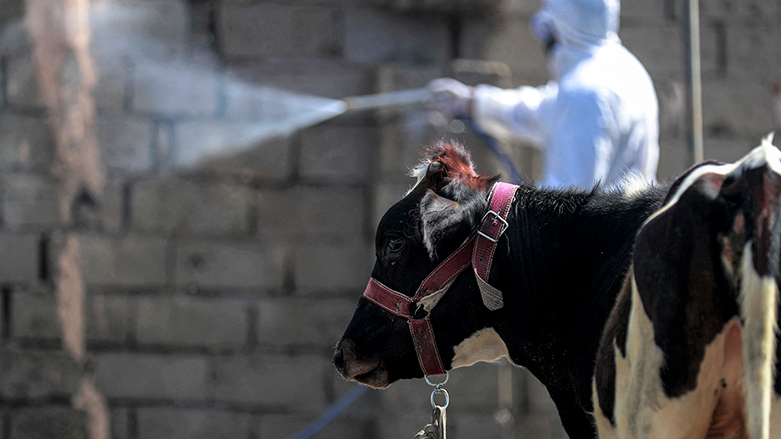Iraq records over 375 Crimean-Congo fever cases in six months
High fever and internal and external bleeding are the most common symptoms of the disease.

ERBIL (Kurdistan 24) – Iraq has so far witnessed more than 375 confirmed cases of Crimean-Congo Hemorrhagic Fever, a tick-borne disease that transmits from infected animals to human beings, the country’s health minister announced on Wednesday.
The fatality rate to the disease in Iraq is 14 percent, Iraqi Minister of Health Saleh Mahdi Al-Hasnawi, told reporters in a presser held following a ministerial meeting on the status of the disease, of which 377 infections have been recorded since January this year.
Although Iraq has previously recorded cases of the disease, against which no known vaccine or cure is currently available, infections have seen a dramatic increase since last year. Health officials blame the lack of disinfection campaign at livestock farms during the COVID-19 lockdown.
Iraq recorded its first case of Crimean-Congo Fever firstly in 1979. Annually, the country records about 20 cases of the disease.
Kurdistan Region has so far recorded 14th cases of the disease, according to official figures compiled by Kurdistan 24.
High fever and internal and external bleeding are the most common symptoms of the disease.
Unregulated livestock breeding and slaughtering have been blamed by health officials for the uptick in cases this year.
Iraqi and Kurdish health and veterinary officials have recently ramped up efforts to raise public awareness of the disease by spreading awareness through disinfection campaigns and cracking down on illegal slaughtering.